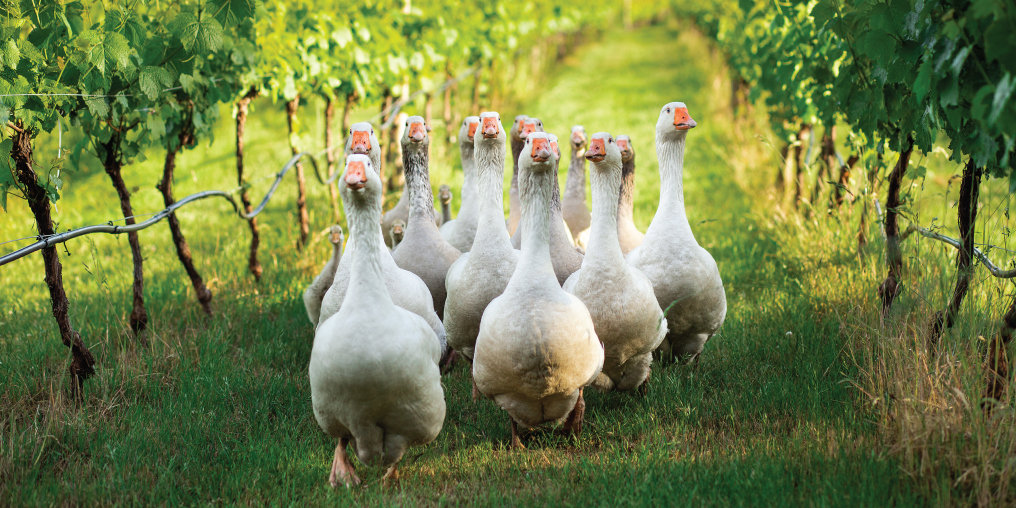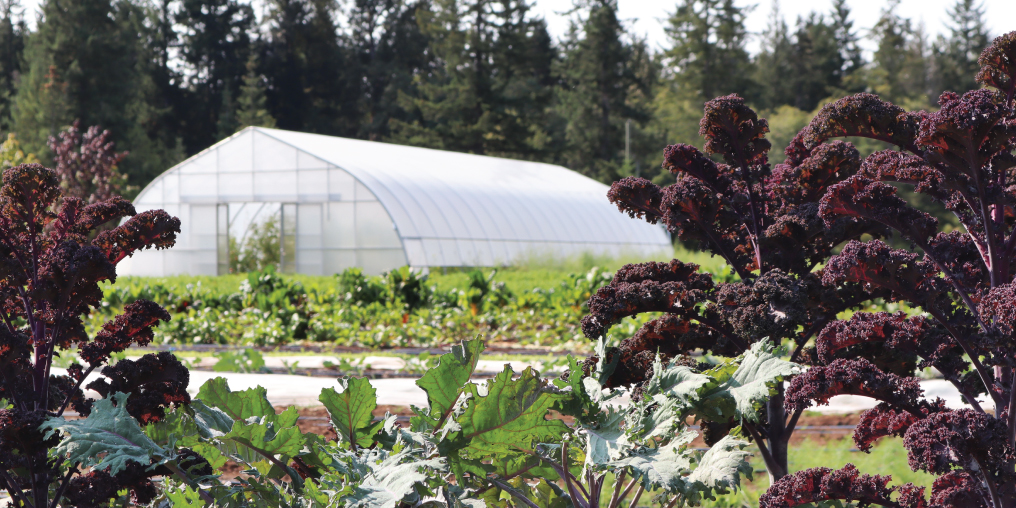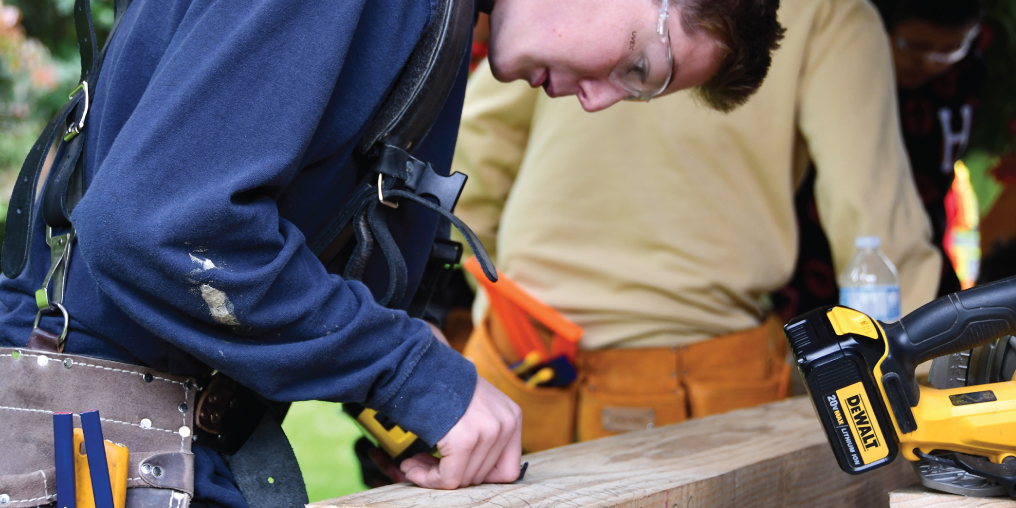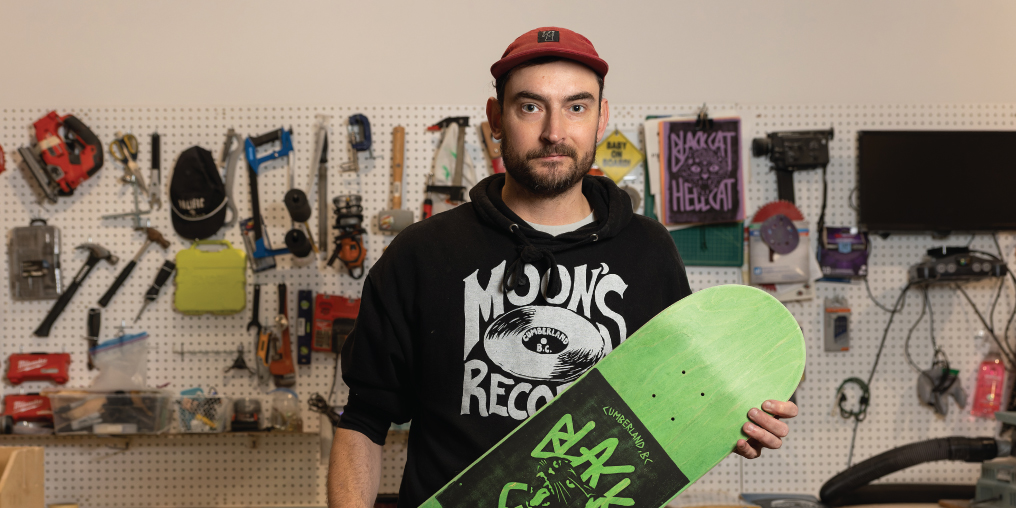40 Knots Winery is alive with potential energy. I sit in the glassed-in terrace across from Layne Craig, who owns the vineyard with his wife, Brenda Hetman-Craig. Together they head a staff that includes four generations of their family. A bright sun cuts across an unseasonably blue sky, heating the space without assistance from the wide stone fireplace. I can see ravens soaring above the grapevines to the east. Craig, whose interest in flying airplanes professionally was hindered by a need for corrective lenses, can name aircrafts overhead without looking up.
It’s easy to romanticize the daily experience of vineyard owners. But hard work and getting dirty hands is the backbone of success when making wine, much like it is with any self-sufficient and/or sustainable lifestyle.
Two years prior to retirement from their corporate lives in Fort St. John, the couple began looking at vineyards across British Columbia. Primary on their list of considerations was the social and cultural environment. After that, they started to look at the environmental conditions. The Comox Peninsula’s glacial till deposit supports good drainage and holds minerals and organic matter that provide character to the grapes. But they had a lot of work to do. “When we got here, you would be damned [lucky] to find a ladybug,” Craig says. “You would be damned to see a worm.”
When they purchased the vineyard nearly 10 years ago, sustainable prosperity was their vision from the start. 40 Knots believes great wine isn’t made in the tank or barrel, it’s made in the vineyard. So their ownership began in the dirt, with the roots of earnest farming.
It’s an interesting position to find yourself in, to be considered forward thinking by returning to traditional practices, many of which are second nature given Craig’s upbringing on a farm in Saskatchewan. “We’re following an age-old tradition that has been handed down from as far back as the 1500s in Ireland and Scotland. Growing complementary crops, taking care of weeds in a certain manner, nothing going to waste … sustainability, and preserving that conscious ideal, was passed on to me and I didn’t even know it.”
For the last seven years, 40 Knots has worked with Yasir Syed, CEO of ViviGro Sustainable Solutions, whose eco-friendly fertilizers help farmers repair their soil. In this time, the vineyard has seen an 84 per cent reduction in costs and an eye-popping 254 per cent increase in yields. They’ve also managed to dramatically reduce their water use, and they and their employees are all safer now that no flammable or poisonous chemicals are on site.
For some companies, words like “sustainability” come across as something thrust upon them, that they scramble to apply to their business in response to consumer demand. It’s refreshing that when Craig and I begin discussing sustainability, he brings up the topic in relation to the broader community almost immediately.
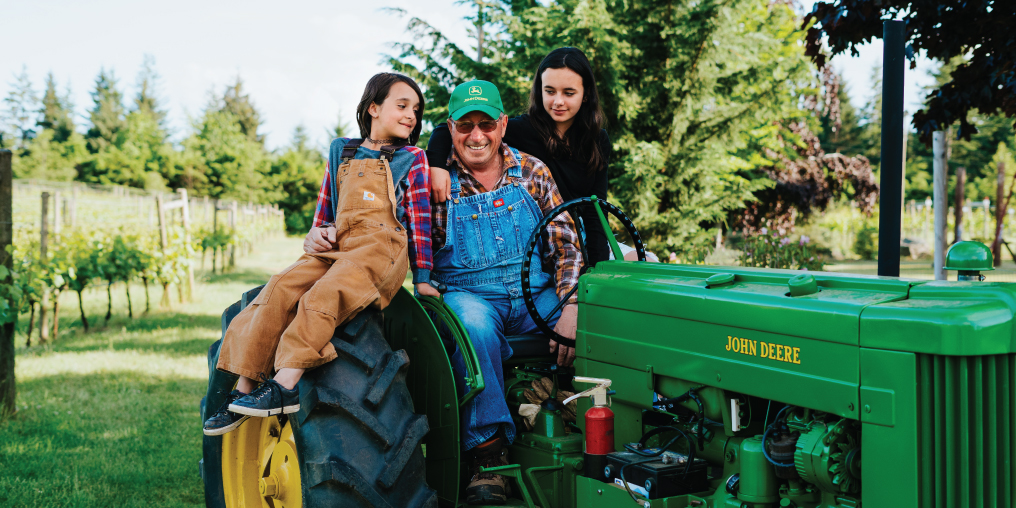
For 40 Knots, sustainability isn’t just a buzzword—and it’s about more than their growing practices; it’s about building a community. They support select local cultural, environmental, and social causes.
Their most pressing mandate is to assist community members at immediate risk. In 2022, they purchased a $23,000 home to benefit a recipient of the WeCan Shelter Society, a program that repurposes shipping containers into safe, secure housing for Comox Valley residents in need. When I ask about why this is important to them, Craig recalls growing up in a small town where residents would lean on each other in difficult times. “If someone needed help, you would help them. If someone’s house burned down, you would help them build a new one.”
Toward the end of our interview Craig asks a question containing the enthusiasm of someone truly interested in biodiversity. “Want to go look at worms?” And I do.
As we stroll around the property, he points to small mounds in the dirt made when the vineyard’s now plentiful invertebrates leave the ground during heavy rain, aerating the soil in the process. Though leaves have yet to return to the grapevines, I sense the forthcoming spring building underground. We talk about the gaggle of geese that patrol property boundaries and control pests, as well as the whippets that work security.
Craig sends me off with a bottle of 2021 Carambolage, a blend of classic red Island varietals. It’s wrapped in a label with a nod to his passion for flying. As I tuck it away for safekeeping at home, I think about the changes the Valley has seen in the years since Layne Craig and Brenda Hetman-Craig purchased the vineyard, and how the community is fortunate to experience the kind of progress they offer.
The back label of the bottle lists the wine’s two ingredients: grapes and yeast. I look forward to drinking it with the knowledge of what it doesn’t contain.

